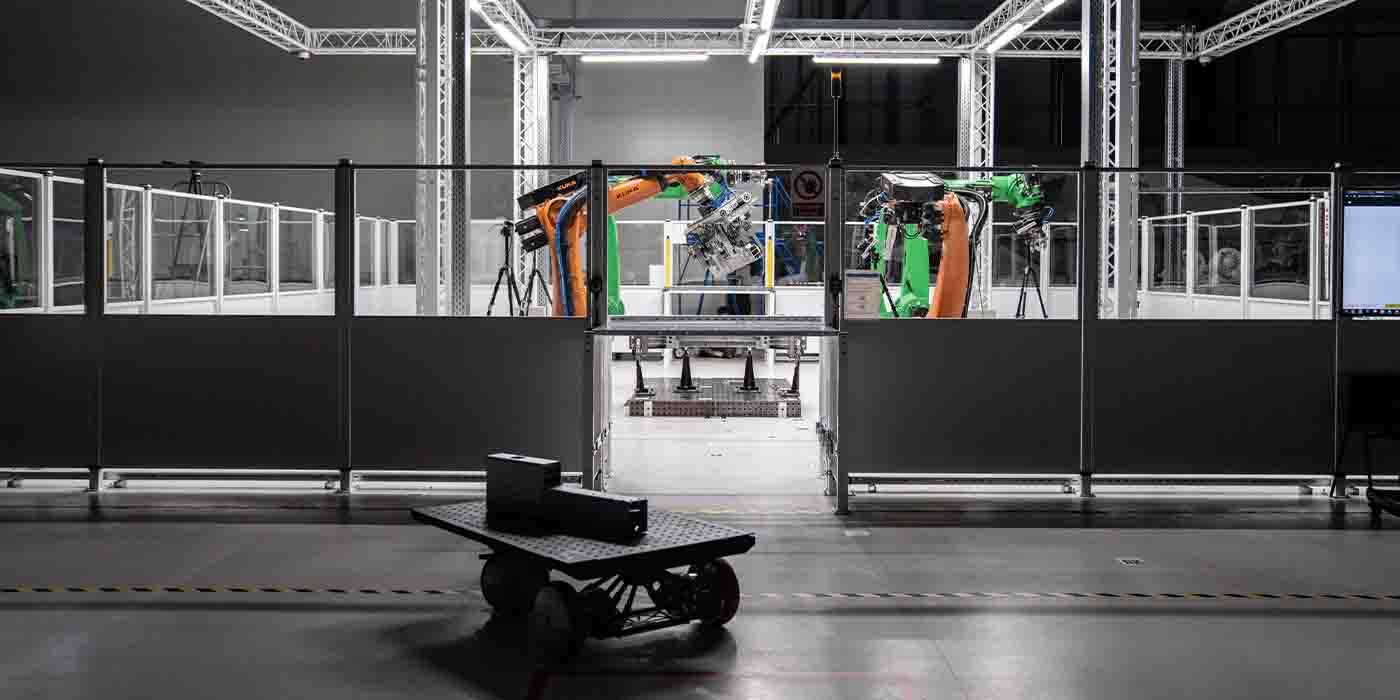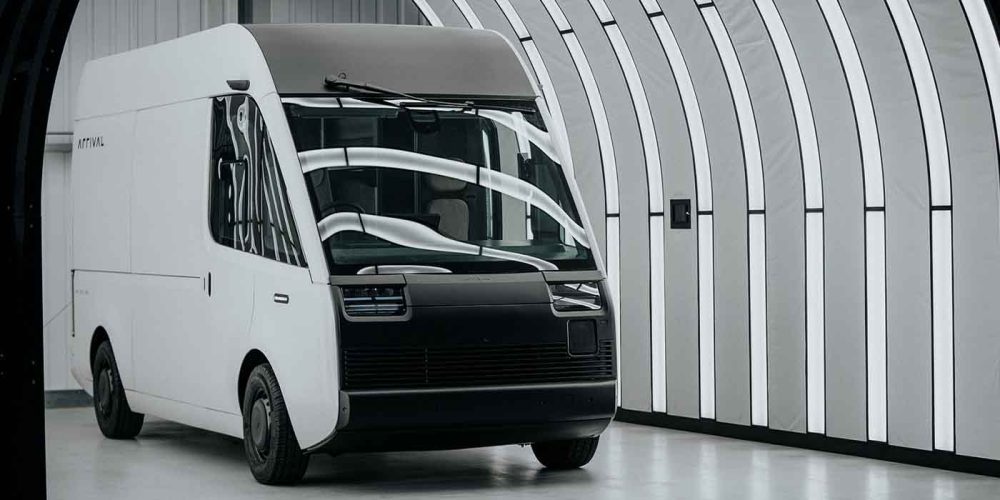
EV start-up Arrival has announced its second business strategy pivot in the past three months. After recently demonstrating the successful use of its microfactory model in the UK to build its all-electric van, Arrival has decided to refocus its business approach and all resources for the US market with hopes of maximizing federal tax credits.
Arrival ($ARVL) is an EV start-up focused on delivering urban-centric mobility, which originally consisted of larger plans that included an all-electric passenger bus, a delivery van, and a rideshare-specific Arrival Car designed alongside Uber.
The company currently has headquarters in both London and Charlotte, North Carolina, but up until now, all of its R&D and design has taken place in Bicester, where Arrival Van production was originally scheduled to begin following the recent proof of concept build of the Van using the microfactory model.
Rather than pouring hundreds of millions of dollars into the construction of mega production facilities, Arrival’s model takes existing industrial facilities and installs its own assembly cells, removing the need for any special foundations, pits for painting, or other assembly processes.
Since going public via SPAC merger in March of 2021, the start-up’s stock has stumbled, leading to an announcement this past July that it would be reorganizing its business to focus on Arrival Van production. As a result, Arrival put a complete halt to Arrival Bus and Car development for the time being.
Most recently, Arrival has decided to pivot its EV business once again, this time shifting its focus to US production due to the significant cost to scale overseas and a less-than-stellar at-the-market (ATM) platform.

Arrival moves Van production to US but will still operate in UK
Arrival shared details of its latest change to its strategy to hopefully (finally) scale EV production toward viability – a difficult hurdle that has sunk many start-ups that have come before it. According to the company, it plans to shift the focus of its Van products and coinciding EV technologies (core components, composite materials, mobile robotics, and software-defined factories) for the US market. Per the release:
In August, the Company announced plans to use existing cash on hand of $513M plus funds available through a $300M At the Market (ATM) Platform to deliver the first vehicles to UK customers this year, invest in hard tooling and launch the Charlotte microfactory next year. At the end of Q3, the Company had existing funds of approximately $330M cash on hand and due to the current share price and daily trading volumes, has not found the ATM to be a reliable source of capital. Scaling production in the Bicester microfactory requires significant further investment in hard tooling and working capital and the Company has determined that the benefits of such an investment would be best directed to the US market.
Arrival shared that a major reason for its decision to focus on its US business was the revised terms of the federal tax credit as part of the recently signed Inflation Reduction Act. These terms allow for federal credits between $7,500 to $40,000 for commercial vehicles. The company also cited the large addressable market size of the US and substantially better margins as other factors in its decision.
In order to keep the lights on at Arrival HQ, it intends to pare down its workforce yet again in order to match its business restructuring while simultaneously cutting cash-intensive activities. Arrival candidly shared that these proposals are expected to have “a sizable impact on the company’s global workforce, predominantly in the UK.”
Despite impending layoffs overseas, Arrival says it will still produce a small number of Vans in Bicester in order to optimize its microfactory processes and support trials with UK customers. Looking ahead, the EV start-up says it intends to raise additional capital requires to fund the commercialization of US Van production. It is currently “exploring all funding and strategic opportunities.”
Good luck, y’all.
FTC: We use income earning auto affiliate links. More.




Comments